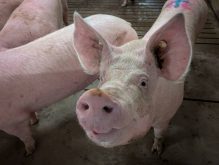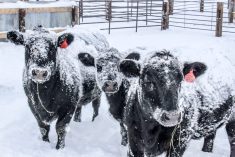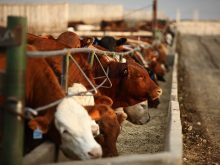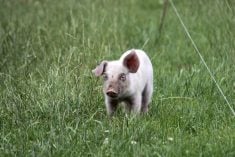Quebec-based meat packer Olymel’s bid to stem losses in its fresh pork business now includes closing down one of its five Canadian hog slaughter plants.
Olymel, the protein arm of Sollio Co-operative, announced Friday it will wind down operations at its hog slaughter, cutting and deboning plant at Vallee-Jonction, Que. and permanently close the facility by Dec. 22.
The decision affects 994 employees across two shifts per day, including 911 unionized workers and 83 managers, Olymel said. Of the 911, 122 are in Canada as temporary foreign workers (TFWs).
The decision follows reductions in Olymel’s total annual hog slaughter over the past 12 months by about 1.5 million hogs. By operating just three slaughter plants in Quebec, Olymel said it “will be in a better position” to reach a reduced weekly slaughter capacity of 81,000 hogs, down from 140,000.
Read Also
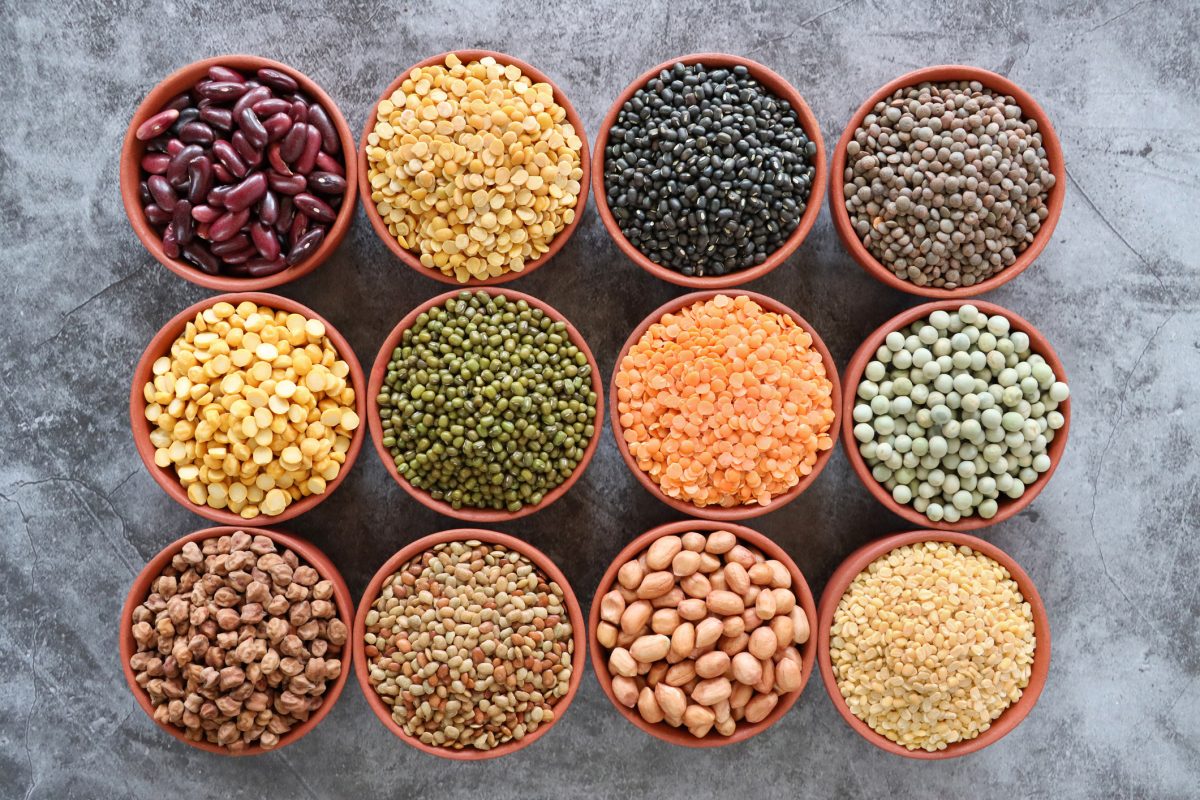
Pulse weekly: USDA to buy US$75 million in pulses as part of support package
Pulse growers in the United States have a new market after a recently announced program from the U.S. Department of Agriculture allocated US$75 million to purchase peas, lentils, beans and chickpeas.
“After carefully examining the difficult situation in the fresh pork sector and searching for the best way out of this crisis, it has become clear that closing one of Olymel’s four slaughtering, cutting and deboning plants in Quebec was inevitable,” CEO Yanick Gervais said in a release.
The decision followed an analysis of the four plants which “ultimately revealed the limitations of the Vallee-Jonction plant, given the steady decline in the available workforce and the condition of the facilities.”
The plant at Vallee-Jonction, about 60 km southeast of Quebec City, has operated since 1965 and has been part of the meats division of what’s now Sollio since 1975.
On a call Friday morning with reporters, Gervais said the plant has “some structural problems” and its cooling systems need fixing. The structural problems are nothing dangerous, he added.
The plant’s configuration also “limits technological improvements,” meaning it’s too tight to allow for installation of robots and other automation — a problem that’s not an issue at the three remaining slaughter plants. In all, the needed upgrades and repairs at Vallee-Jonction would require an outlay of almost $40 million in “the very short term.”
The company did cite a “constant decline in available labour” in the Beauce region, leaving Olymel unable to fill normal turnover-related vacancies at Vallee-Jonction, much less to create new jobs through value-added work. The three remaining plants are in areas with “better recruitment opportunities” for workers, Olymel said.
That said, Gervais emphasized the decision to close the plant was not “region-based” but rather mainly on the “current and potential future operational capacities” of the company’s plants.
To process remaining hogs and meet “producer demand” in the Beauce region and elsewhere, the plant’s closure will start in mid-September with the evening shift, affecting 443 workers. The day shift “should continue depending on supply and labour availability” until the plant “ceases operations completely” on Dec. 22.
Vallee-Jonction employees will be offered the option for “voluntary relocation” to one of six other Olymel plants, and the company has also “taken steps with federal and provincial authorities” to allow affected TFWs to apply for relocation to other Olymel sites.
“As if it weren’t insulting and violent enough to be treated this way, we are asked to stay on the job until the final closure,” Martin Maurice, president of the Syndicat des Travailleurs d’Olymel Vallee-Jonction, the local union backed by CSN (Confederation des syndicats nationaux), said Friday in a separate release.
‘Obstinate’
As for affected hog producers in Quebec, Gervais said a new three-year agreement between hog buyers/processors and Eleveurs de porc du Quebec “is being established,” with details to be announced next week.
Provincial Agriculture Minister Andre Lamontagne said Friday on Twitter that the plant closure is part of a difficult restructuring for Olymel — but also said news would come shortly to assure the pork sector’s sustainability.
Quebec’s hog farmers and packers have been in talks led by former provincial finance minister Raymond Bachand since last September, Gervais said Friday, adding that “both processors and producers have suffered from the consequences of the worst economic situation in our industry.”
Gervais emphasized it’s “important to remember the efforts made by both sides to support the sector, such as facilitating the processing of remaining hogs and making financial arrangements to reduce price pressures.”
Martin Caron, president of Quebec’s Union des producteurs agricoles (UPA), said in a separate statement Friday that Olymel’s announcement flies in the face of “the efforts, the investments and the sacrifices” of hog producers, who “deserve better, period.”
UPA on Friday called for the province and its agriculture ministry (MAPAQ) to step in and undertake a “neutral and independent” analysis of the current situation in the province’s pork sector, for the sake of industry stakeholders as well as the general public.
CSN president Caroline Senneville, in that union’s release, said the plant’s closure is “directly linked” to the failure of Bachand’s talks between Quebec’s producers and packers.
Alexandre Laviolette, president of CSN’s trade arm, said the closure stems from Olymel’s bad business decisions and the “obstinate stubbornness” of hog producers who didn’t want to have to continue to discount every hog delivered to the company’s plants.
Furthermore, he said, Quebec’s farm income stabilization program (ASRA) could have been used to support producers in a situation where neither party wanted to absorb expected losses.
Barbara Poirier, president for CSN’s Chaudière-Appalaches council, said that while meatpacking workers were regarded as heroes during the pandemic, they’re now about to be let go because of a dispute over how producers and packers could share market losses against which they were “fully insured.”
The plant’s CSN-represented workers in 2021 had ratified a six-year contract which otherwise was due to run through to March 2027. That contract followed a four-month strike which ended after the company threatened to scrap the plant’s evening shift.
‘Turnaround measures’
The COVID-19 pandemic, shortages of available labour, “instability of export markets” and rising raw material costs, among other conditions, have led to losses “which still have a major impact on Olymel,” the company said Friday, noting its subsequent reorganizations, plant closures, asset sales and reductions of hog purchases by over two million head from both Quebec and Ontario.
Gervais noted those “major turnaround measures” are “starting to show results” but the company is “still in the process of optimizing our operations to achieve a more predictable business model and ensure the sustainability of this sector of the business.”
Olymel’s remaining hog slaughter plants in Canada include its Quebec sites at Princeville, St-Esprit and Yamachiche, plus its western hog plant at Red Deer, Alta.
“Significant volatility” remains in the fresh pork sector and the “business risk is high,” Gervais said. “We need to protect our value-added export markets, such as Japan and Korea, as well as our domestic fresh and processed meat activities.”
The Vallee-Jonction plant, which has a weekly slaughtering capacity of up to 35,000 hogs, makes boned pork products, various cuts and chilled pork, with “a large part” of that volume exported to Japan, the U.S. and Mexico.
As for the Vallee-Jonction building itself, Olymel said Friday it will “assess all of its options and… consider any proposals from interested parties.” — Glacier FarmMedia Network




